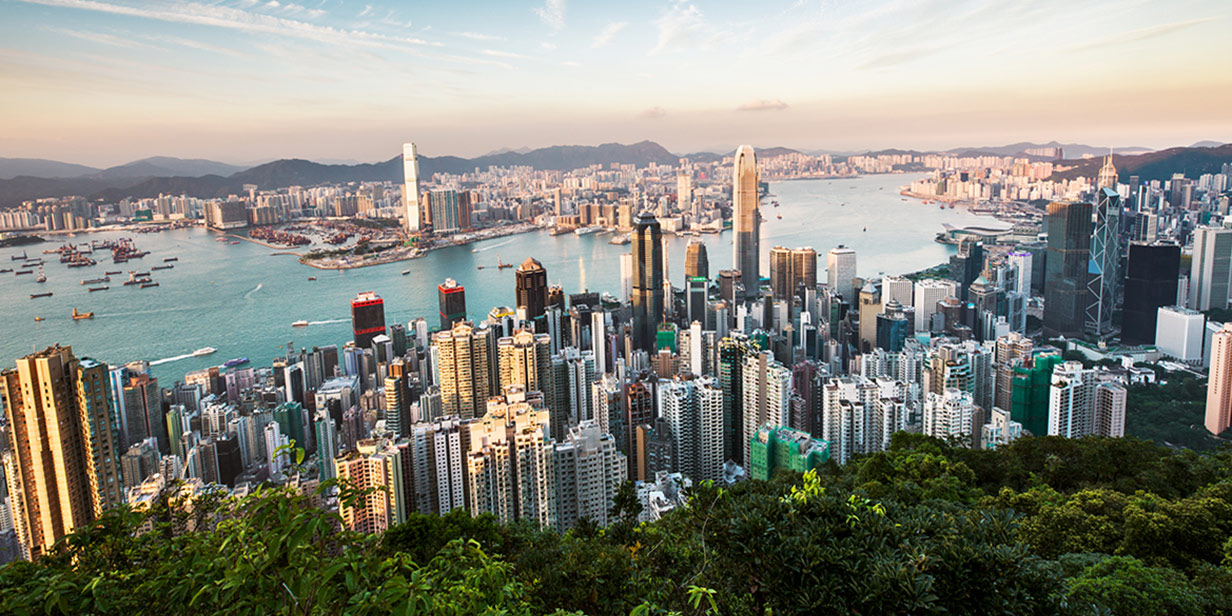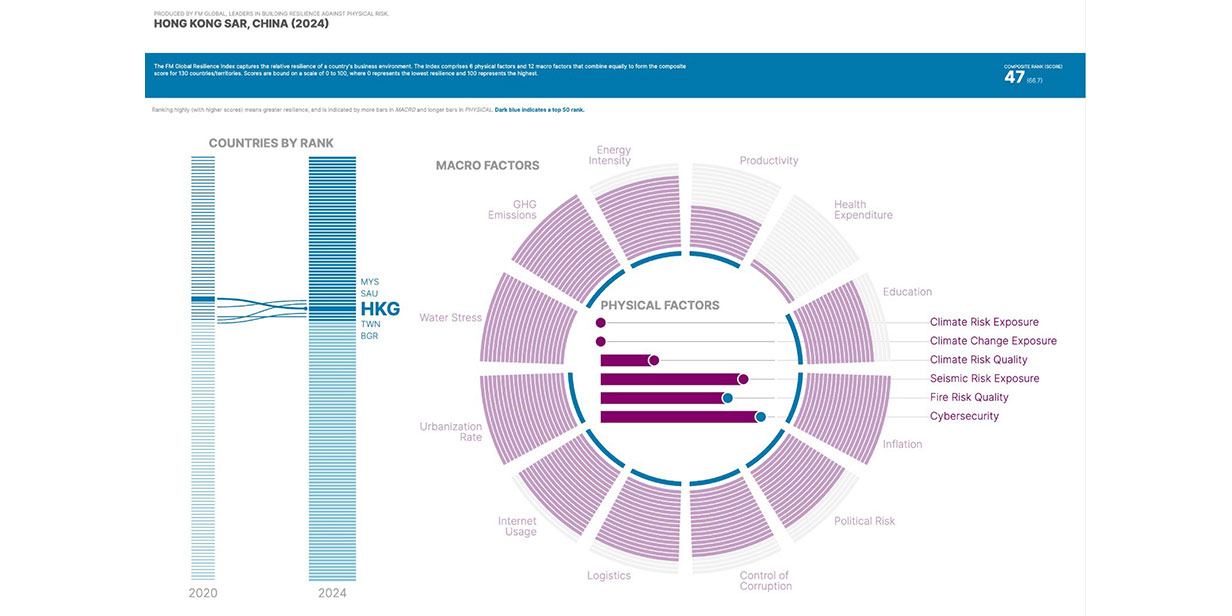Hong Kong: The Resilient Harbour

In this series, we take a closer look at how key Asia countries and territories ranked in this year’s FM Resilience Index. The FM Resilience Index is a tool to help businesses and other organizations understand a country's ability to swiftly recover after disruptive events as well as which risks are manageable.
“Hong Kong is not without risk due to its increasing climate exposure. However, it remains a vital logistics and financial hub, and a harbour of resilience in a period of change.”
Ranked No. 47 on the 2024 FM Resilience Index, Hong Kong, a bustling Asian metropolis also known by its Cantonese translation, Fragrant Harbour, has consistently demonstrated resilience throughout its centuries-old history. Today it presents a mix of modernity and tradition as an international financial and business hub, major trading port and a commercial gateway to mainland China and other significant markets in the region.
Like many other Asian cities, Hong Kong presents businesses with a range of risks due to its geographical location and high rate of urban development – where it ranks highest globally in the Index. Extreme weather events, such as typhoons, high rainfall and flooding, are perennial, while a changing climate has increased the risks posed by rising sea levels, urban heat island effect, water scarcity and air pollution.
Hong Kong’s overall ranking on the Index – which sets it among the top third of geographies globally – is a testament to its highly developed economy and continued investment to maintain its economic infrastructure.

Unsurprisingly, Hong Kong ranks No. 7 for logistics, given its world-class port infrastructure, which facilitates millions of tonnes of trade between Asia and the rest of the world each year, and No. 13 for productivity, reflecting the maturity of its economy and earned status as a financial services and commerce hub both regionally and internationally. Hong Kong is similarly ranked No. 13 for inflation, measured by the annual rate of change in consumer prices, emphasising again its overall robust financial stability and monetary policies.
Hong Kong ranks a stable 35 for political risk, reflecting recent political movements and investor interest in the evolving influence of China on Hong Kong’s economy, complemented by a commendable No. 17 for control of corruption, which measures the influence of public power on business. Hong Kong ranks No. 46for its commitment to cyber security.
Given its relative size and economic profile, notable for its reliance on energy and food, and related imports, Hong Kong ranks No.3 on the Index for Greenhouse Gas Emissions – where estimated national emissions are divided by Gross Domestic Product per capita to achieve a score. This is offset however, by lower rankings for water stress – a measure of freshwater supply versus withdrawal – climate change exposure and climate risk exposure, where it comes in at No. 130 and No. 124, respectively.
The climate change exposure ranking is a measure of the area of land utilised for economic purposes that is exposed to climate impacts by 2050, while climate risk exposure is the same area today that is exposed specifically to the risks posed by typhoons and floods. Balancing this is Hong Kong’s top-half Index ranking for natural hazard risk quality at No. 59, reflecting the efficacy of building codes and standards to manage against these risks. Related to this, Hong Kong ranks No. 39for fire risk quality due to the quality of its building design standards and fire safety protocols.
The story of Hong Kong’s business resilience sits at the juncture of its exposure to natural hazards and climate events, and its position as an efficient financial and commercial hub connecting North Asia and the rest of the world. Its ranking is boosted by committed efforts by policymakers to combat pollution and promote sustainability, including measures to reduce carbon emissions, improve waste management and enhance energy efficiency.
For property and asset owners, investment in Hong Kong is not without risk due to its increasing climate exposure. However, it remains a vital logistics and financial hub, and a harbour of resilience in a period of change.
